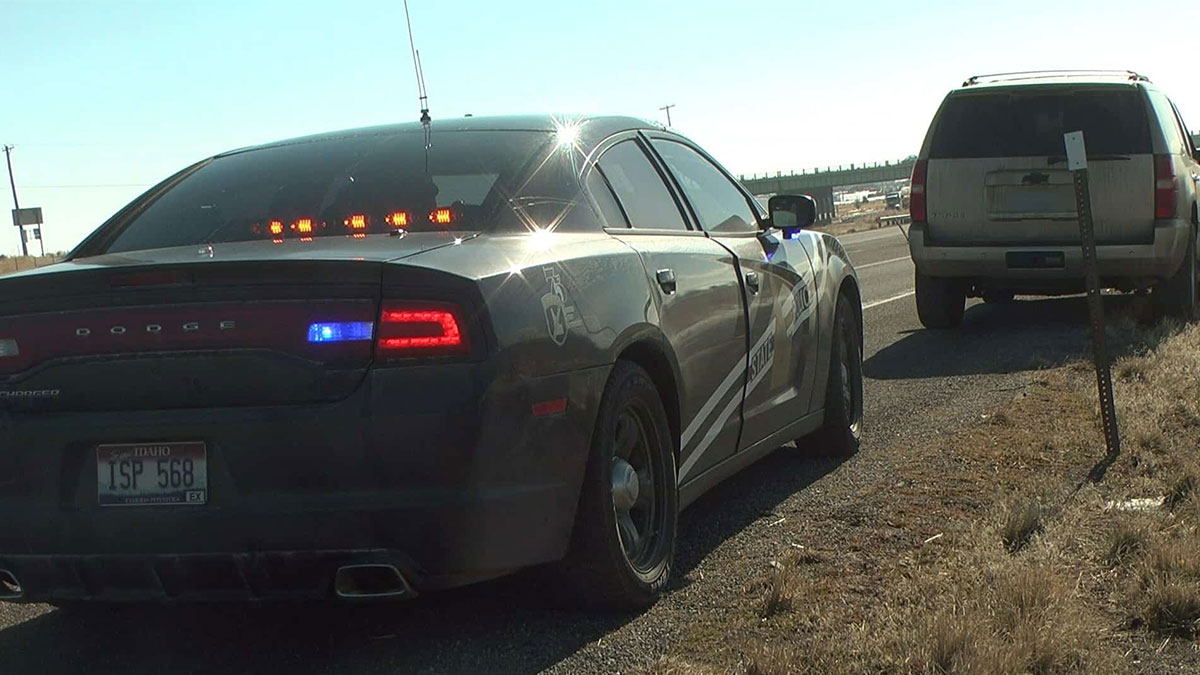As a criminal defense lawyer in Boise, Idaho, I often get asked, when can a police officer stop me in my car? In a prior blog post I talked about when a police officer can search your car, but before an officer can search your car, it goes without saying that he has to stop you first. But can a police officer stop whomever he wants to stop? I know it may seem like they can at times, but the answer is no, a police officer can not stop you for just any reason.
The general rule is that if a police officer wants to stop your vehicle, or in legal terms seize you and your vehicle, he needs to have, what is called by the courts, reasonable articulable suspicion that criminal activity is afoot. This rule is derived from a United States Supreme Court case, Terry v. Ohio. Consequently, this type of stop has come to be known as a Terry Stop.
Sometimes you will hear the reasonable articulable suspicion standard shortened to just reasonable suspicion, usually it is a law enforcement officer who shortens the term. All three words are very important though.
Suspicion is something we all experience on a daily basis. Many times our suspicion is based on a gut feeling we have. And conveniently enough, often our gut feeling is right. I have learned to rely heavily on my gut feelings in my personal and professional life. Most of the time we really cannot articulate what it is that gave us the gut feeling, but we rely on the feeling anyway, and for many of us, it turns up good results.
A police officer is not allowed to rely solely on a “gut feeling” as a basis for stopping someone. The United States Supreme Court has said exactly that; a law enforcement officer cannot rely solely on a gut feeling, or mere suspicion. A police officer is not allowed to do what you and I do every day. In order to be justified in stopping a vehicle, and detaining the person in that vehicle, he must have a reasonable and articulable suspicion. What articulable means, is that he has to be able to tell the judge, with articulable language, what specific facts gave him the suspicion that criminal activity was afoot. For example, he could say, the vehicle was speeding, or the plate’s tags were expired, or the car changed lanes without using its blinker, or the car was swerving dangerously, etc. etc. But if the officer fails to articulate specific facts, or if the specific facts he articulates would not lead a reasonable police officer to believe that criminal activity has occurred, or is about to occur, then he has not articulated grounds for stopping someone. A common example of this is weaving within a lane. Many times officers use this as a basis for stopping a vehicle. However, there are many times where the weaving within a lane is not significant enough to amount to a reasonable articulable suspicion that the driver was drunk or inattentive. Slight deviations within a lane are to be expected, and so the weaving would have to be substantial enough to amount to reasonable articulable suspicion that the person was drunk or was inattentive in his driving, since the activity of weaving itself is not illegal. Sometimes the specific facts are not instances of illegal conduct themselves, however they may lead an officer to infer that criminal activity has occurred, or is about to occur. This inference can be based on the totality of the circumstances. For example, it is not illegal to park your car outside a bank; it is not illegal to sit in your parked car outside a bank; it is not illegal to possess an empty burlap bag in your car outside a bank; it is not illegal to wear a ski mask while parked in your car outside a bank; and it is not illegal to have a shotgun in your car while you are parked outside a bank (at least in Idaho). However, all of these facts taken together, could lead any reasonable officer to infer that a bank robbery is about to go down. This would be a clear example of when an officer would have a basis to stop you in your car and investigate further. The remedy for an officer stopping you without reasonable articulable suspicion of criminal activity is that the evidence gained as a result of the stop will be suppressed. If the officer does not find any evidence as a result of the illegal stop, the typical result is you drive away angry, and the officer goes on his merry way. Of course you may have a legal claim against him for violating your civil liberties, but the difficulty of bringing that type of claim against the state dissuades most people from ever trying. In other words, if you really were doing something wrong, then you can get off by having the evidence suppressed. If you were innocent of any wrong doing, you effectively have no remedy.
